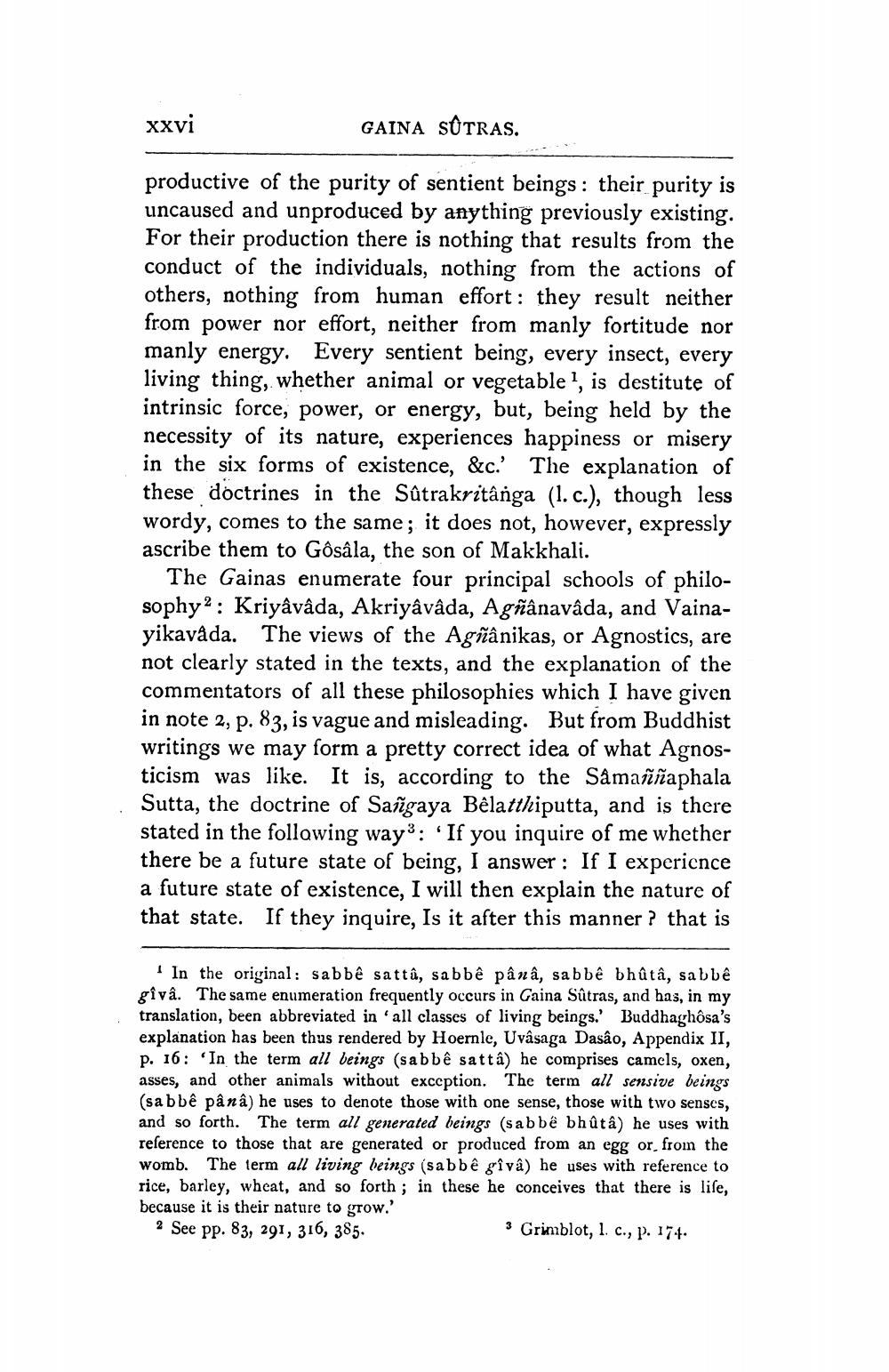________________
xxvi
GAINA SUTRAS.
productive of the purity of sentient beings: their purity is uncaused and unproduced by anything previously existing. For their production there is nothing that results from the conduct of the individuals, nothing from the actions of others, nothing from human effort: they result neither from power nor effort, neither from manly fortitude nor manly energy. Every sentient being, every insect, every living thing, whether animal or vegetable ?, is destitute of intrinsic force, power, or energy, but, being held by the necessity of its nature, experiences happiness or misery in the six forms of existence, &c.' The explanation of these doctrines in the Sûtrakritânga (1. c.), though less wordy, comes to the same; it does not, however, expressly ascribe them to Gôsâla, the son of Makkhali.
The Gainas enumerate four principal schools of philosophy?: Kriyâvâda, Akriyâvâda, Agñânavâda, and Vainayikavåda. The views of the Agñânikas, or Agnostics, are not clearly stated in the texts, and the explanation of the commentators of all these philosophies which I have given in note 2, p. 83, is vague and misleading. But from Buddhist writings we may form a pretty correct idea of what Agnosticism was like. It is, according to the Såmaññaphala Sutta, the doctrine of Sañgaya Bêlatthiputta, and is there stated in the following way®: 'If you inquire of me whether there be a future state of being, I answer : If I experience a future state of existence, I will then explain the nature of that state. If they inquire, Is it after this manner ? that is
In the original: sabbê sattâ, sabbê pânâ, sabbê bhûtâ, sabbê gîvâ. The same enumeration frequently occurs in Gaina Sûtras, and has, in my translation, been abbreviated in all classes of living beings.' Buddhaghôsa's explanation has been thus rendered by Hoernle, Uvâsaga Dasão, Appendix II, p. 16: 'In the term all beings (sabbê satta) he comprises camels, oxen, asses, and other animals without exception. The term all sensive beings (sabbê pânâ) he uses to denote those with one sense, those with two senses, and so forth. The term all generated beings (sab bê bhûtâ) he uses with reference to those that are generated or produced from an egg or from the womb. The term all living beings (sabbê gîvâ) he uses with reference to rice, barley, wheat, and so forth ; in these he conceives that there is lise, because it is their nature to grow.' 2 See pp. 83, 291, 316, 385.
3 Grimblot, 1. c., p. 174.




